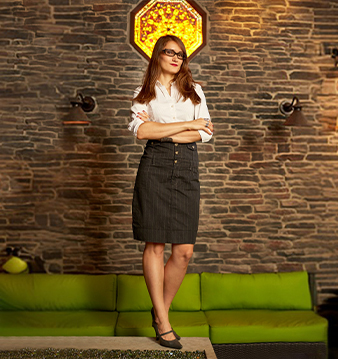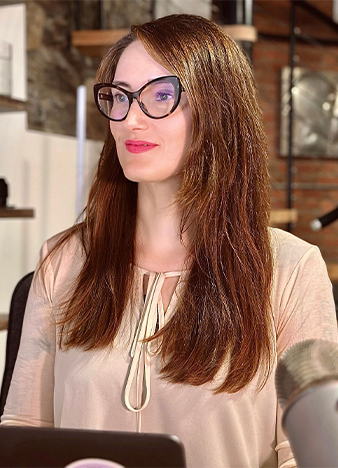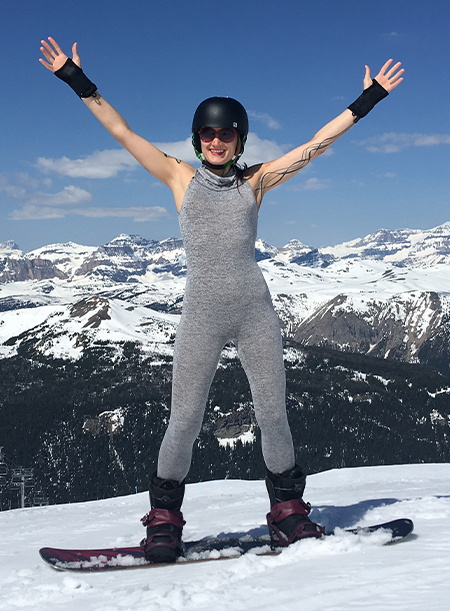 Healthy relationships = Happy life.
Healthy relationships = Happy life.
Our intimate relationships are one of the most treasured resources we have. Good, healthy, happy relationships create a good, healthy, happy life, while poor or mediocre relationships provide the opposite.
The good news is that we have much more control over our relationships than we think we have and more than any other factor that affects our lives in similarly profound ways: the economy, global warming, laws, pandemics, and wars, to name a few.
It’s worth investing some time and energy in learning how to exercise that control smartly to maximize pleasure and minimize suffering for everyone involved. That’s the only way to stop repeating the old dysfunctional patterns that harm us, our partners, and our families, friends, and communities.
Nobody teaches us how to be good at relationships.
Yet, despite how critical our intimate relationships are for our health and happiness, it’s hard to exercise that control. We have more opportunities to hurt ourselves and others as we explore those options but very little guidance or support to determine the right option.
Having too many options without clear guidance is as overwhelming and paralyzing as having too few options is limiting and suffocating. So if you feel like you haven’t been thriving in your relationships, it’s not your fault. The deck is stacked heavily against you. None of us was born good at relationships, and most of us never got the knowledge or skills to navigate relationships well.
Luckily, that can change. Everything you need to know to thrive in your relationships is learnable, and science and technology already have all the tools you need. You just need the proper guidance.
Embark on the most fascinating journey.
That’s where our work comes in. Our relationship trajectories are one of the most fascinating and potentially treacherous journeys we’ll ever undertake. Much like physical journeys, our relationship journey comes with destinations, challenges, discoveries, and growth.
Just as a physical traveler packs a map of the landscape, navigational instruments, and a whole set of other tools and skills necessary for navigating the terrain, a relationship traveler needs to pack accurate knowledge of the relationship landscape, the navigational instruments to find their way around, and the psychological tools and skills necessary for a fun and smooth journey.
The LoveSmarter™ method is that relationship travel pack. Whether you go through it at your own pace via the Open Smarter online course or work with me directly in my private consulting practice, this science-backed framework is your comprehensive guide to your relationship journey. I can’t wait for you to experience the difference!
 My early life.
My early life.
Growing up in (now North) Macedonia, a small Eastern-European country with traditional views about sex and love, I always felt like an outsider. Like most people, I wanted a loving, committed relationship. But from a very early age, I was also interested in things my society deemed unacceptable and repeatedly told me I couldn’t have, especially as a woman.
I was attracted to people of all genders. I craved casual hookups with people I didn’t know well. I dated people much older than me and was excited about group play in every possible variation. I was curious about all the kinks. I could not, for the life of me, understand monogamy.
Being that kind of horny teenager in a hostile, repressive environment with virtually zero guidance was not easy. I endured years of ridicule and ostracism and got myself into some sketchy situations that my adult self shudders at. I made many mistakes and didn’t always act in ways I now find admirable.
Nothing in human psychology is black or white. Everything exists on a spectrum.
 Perseverance paid off.
Perseverance paid off.
Yet, throughout my life, I felt an unmistakable force to follow my heart and live the life I wanted, not the life others expected of me. Living in alignment with who I was made jumping through all the hoops a no-brainer.
I’ve been to all the corners of the sexual and relational landscape, including many that few have dared venture into, and experienced all of the pleasure, fun, and growth that comes from being there voluntarily and intentionally.
But I’ve also seen how much harm this exploring can cause when done involuntarily, unintentionally, or simply poorly: broken boundaries, broken families, intense conflicts, shame, discrimination, physical pain, unwanted pregnancies, sexually transmitted infections, etc.
This is my calling.
It’s what led me to devote my personal life and my entire career to understanding how people with erotic desires that don’t neatly fit the narrow societal box of acceptability navigate sex and love.
So, how do we get what we want without hurting ourselves and our partners? What helps us maintain resilience and sanity? How do we find belonging and commitment, not just pleasure and fun?
After 30 years of looking for answers to these questions, I can now confidently say genuine sexual and relational thriving is greatly accessible to many of us in the West today, and we have all the knowledge and tools we need to make that dream come true.
Truth–or, more precisely, an accurate understanding of reality–is the essential foundation for any good outcome.
– Ray Dalio
 My credentials.
My credentials.
I’m a NYC-based sex researcher, speaker, writer, and consultant. I have a BA in Psychology from the University of Saints Cyril and Methodius in Skopje, North Macedonia, and a Ph.D. in Developmental Psychology from Cornell University, where I studied how different aspects of sexuality are linked to health and well-being. (You can access my peer-reviewed academic research papers on Academia or ResearchGate.)
Since 2014, I’ve been an adjunct professor at New York University, teaching several Human Sexuality courses.
Between 2014 and 2017, I created and ran The Casual Sex Project so people could share their own true stories of hookups. (Check out the thousands of stories submitted and The New Yorker article about it.)
Between 2017 and 2019, I hosted the Science of Sex Podcast with Joe Pardavila, where we interviewed sex and relationship scientists about their latest research. (Listen to the 59 episodes.)
Most recently, my lifelong interest in nontraditional lifestyles led me to create the LoveSmarter™ Method, which guides people to their ideal relationship type using science-based assessments of their unique personalities.
I’ve written for Psychology Today, Playboy, Forbes, them, and served as a featured expert in major magazines and websites like The New Yorker, New York Times, Bustle, Refinery29, Cosmopolitan, Glamour, Men’s Health, and Women’s Health. You can also find me as a guest on many podcasts, including Huff Post’s Love & Sex, True Sex & Wild Love, and Pillow Talk.
The foundation of my beliefs.
1. Everyone has the right to have the sexual and relational desires they have without judgment, shame, or guilt. Most of our desires developed without any intentional effort on our part, and there is not much we can do to change them. Whether and how we act on them is a whole different question, but wise action can only stem from nonjudgmental acceptance of desire.
2. Everyone deserves access to comprehensive and accurate information about sex, love, and relationships. The growing censorship and restriction of this kind of information in our society, both online and offline, is one of the greatest tragedies of our times that we’ll be paying for a long time.
3. Nothing in sex and love is black or white. Everything exists on a spectrum and is often gray and nuanced. It’s only by understanding and honoring the nuance that we stand a chance of understanding each other and building thriving lives for ourselves and others.
4. There is no one-size-fits-all when it comes to sex and love. Everyone deserves a love life that fits their unique needs and life circumstances. I am deeply committed to helping you find what that looks like for you.
5. Truth, or an accurate understanding of reality, is the essential foundation for any positive outcome. It’s only by understanding, accepting, and working with reality, however hard it is, that we can solve the issues. I’m one of those friends who will always tell you that you have food stuck in your teeth; you can expect the same as your consultant.
6. We are obligated to be ethical to our partners, and we are also allowed to make mistakes and learn and grow from them. I hold myself and others to high standards of ethical behavior, and I also have understanding and compassion for all of us when we fail to uphold them. I don’t believe in cancel culture.
7. We’re all innately capable of positive growth if we choose to believe in ourselves and put in the work. This remarkable ability to evolve, learn, and adapt is at the core of our nature and our evolutionary success on this planet. You will always have an ally in me, no matter how many times you mess up, as long as you’re committed to cleaning it up and doing better in the future.
 My life outside work.
My life outside work.
I’ll be honest. I really like my work, so I spend A LOT of time doing it. You know that question prompt on the Hinge dating app, “Your dream job if money didn’t matter”? My answer has always been “same as now.”
When I’m not writing, teaching, or consulting, you can find me taking long walks, doing yoga, reading, seeing theater and art shows, seeing one of my lovers, attending play parties, attending psychedelic ceremonies, traveling, snowboarding, surfing, or one of my favorites – dancing at underground electronic music festivals. I’ve been dancing to electronic music for three decades and counting; being on the dance floor gives me life and a sense of connectedness and belonging to something much larger than myself.
After my unsuccessful early attempts at monogamy, I’ve spent the last 20 years exploring all the corners of the sexual and relational universe. After a long period of kid-in-a-candy-store singledom, an incredibly fun eight-year-long open marriage (that we transitioned out of most beautifully and amicably possible), a monogamish relationship, several shorter periods of intentional celibacy, and even a deliberate and voluntary albeit short and temporary return to monogamy, I’m currently happily single –with a few good casual but consistent lovers– as I’m focusing on writing my book.

